Jeremy Corbyn and the truth about Tom Bower's book
9 March 2019
A biography about the Labour leader systematically distorts the truth, writes Peter Oborne
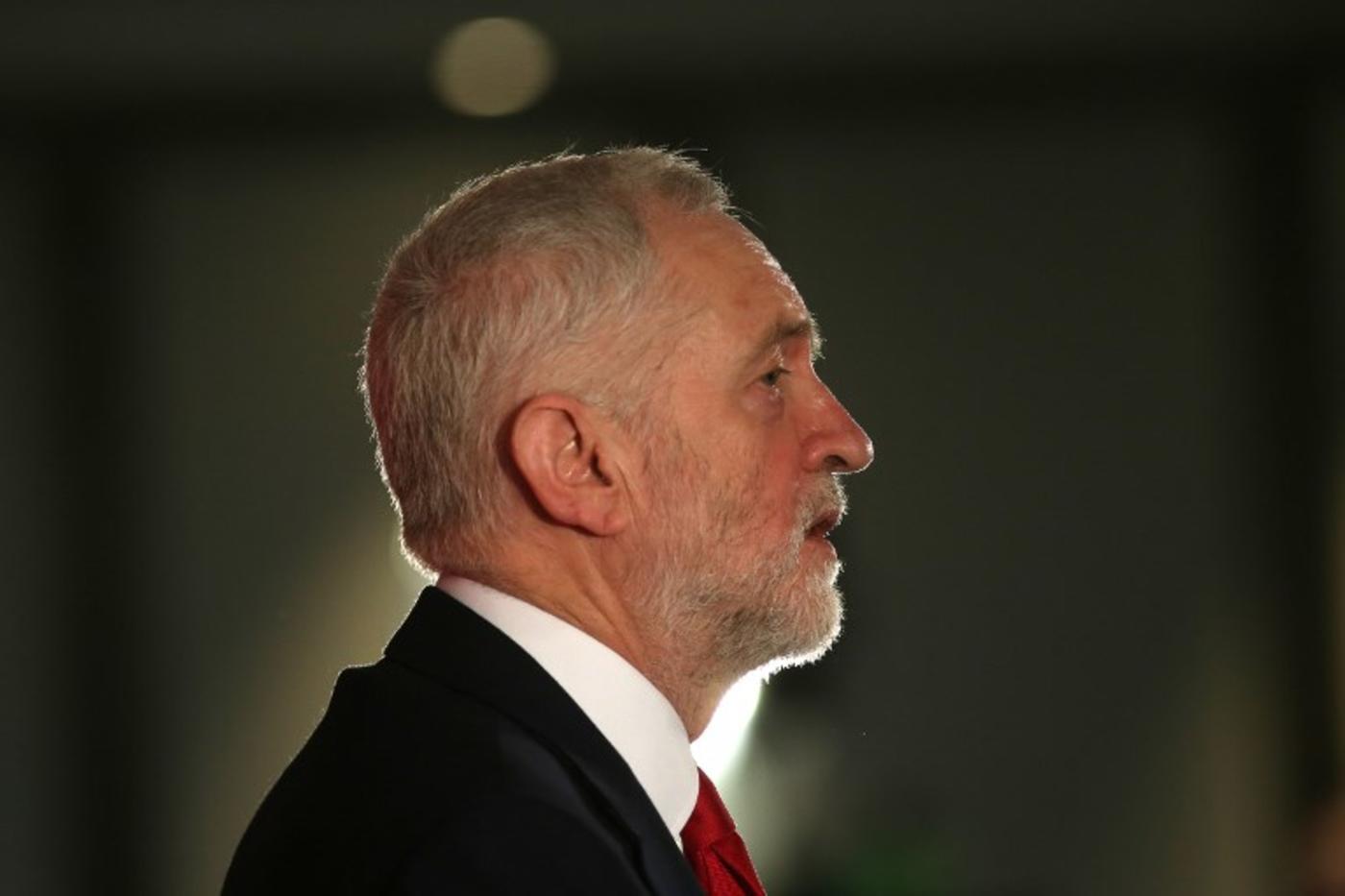
Jeremy Corbyn has been the subject of a critical biography by Tom Bower (AFP)
Those of us who report on politics are at liberty to express, within limits, whatever opinions we like. These limits include an obligation to observe standards. We should strive to be accurate. We can make strong arguments but ought not to distort the truth or suppress relevant information to make our point.
Writer Tom Bower fails catastrophically to meet these standards. It is not only that Dangerous Hero: Corbyn's Ruthless Plot For Power, his new book on Labour Party leader Jeremy Corbyn, contains numerous falsehoods. It systematically omits relevant facts in order to portray Corbyn as a ruthless Marxist and anti-semite hell-bent on destroying Western liberal values.
The Times, the nearest thing that Britain has to a paper of record, has awarded it a prominent review. Ditto the Sunday Times. Tom Harris, a former Labour MP, was not far short of reverential in the Daily Telegraph, calling it a “meticulous and highly readable account”. In the US, an interview with Bower has appeared in the Washington Post.
If this book was floating around harmlessly on the internet I would not give it the time of day. But it’s published by William Collins, a respectable publishing house. It’s soared to No. 2 in The Sunday Times bestseller list. It has been praised in prominent newspapers.
Meanwhile, Bower’s ruminations have been publicised at enormous length in the Mail on Sunday (a sister publication to the Daily Mail, for which I write a weekly political column).
This is not good enough. I believe that we in the British press should care about accuracy and integrity. I don’t believe I can be entirely alone in this. The ugly truth is that Bower is not straight with his readers, let alone Corbyn.
Again and again he withholds relevant information, with the result that the Labour leader and his colleagues come over in the worst possible light.
During the last 36 hours, I have made numerous attempts to make contact with Tom Bower in order to give him the chance to defend himself. I've contacted him by mobile phone, by text message and at his direct line at his London home. No answer. I also emailed a list of questions to Bower yesterday morning, both to his private email address and to his publicist at William Collins. He has not responded to me.
Bower has made an astonishing number of factual errors – more than I have ever come across in a book from a mainstream publisher. While something has clearly gone horribly wrong with the editing process at William Collins, Bower is the author and must take full responsibility.
This consistent inaccuracy is made worse by the fact that there are no references nor citations. Quotes are frequently provided without naming the source. Bower says that he does not provide references because he does not want to compromise those who have given him information. He also cites “legal reasons”, though he tantalisingly does not explain what they are.
Time after time, Bower makes assertions that are not backed by any evidence. The problem is so bad that I resolved to carry out my own investigation into the truth of some of the assertions made in Bower’s book. This article is the result of my research. Again and again, I have been able to prove that his account of events is false, misleading and, in some cases, pure fabrication.
Speeches and strikes
To start with a characteristic example, take Bower’s account of Corbyn’s first party conference speech back in 2015. Bower describes how the Labour leader “adopted a speech written by Richard Heller, a freelance speechwriter, in the early 1980s that had been repeatedly offered to every Labour leader since Michael Foot, and always rejected as too extreme".
I rang up Heller. He confirmed that he had indeed offered the speech to all Labour leaders since Michael Foot. But he said Bower’s assertion that his speech was rejected as "too extreme" was false. Heller (who is a friend of mine) told me: “None of the previous leaders replied to me at all.”
Bower manages to leave his readers with the impression that Corbyn used a speech that had earlier been rejected as "too extreme". There is no way he can have known this. He made no attempt to establish the truth from Heller himself.
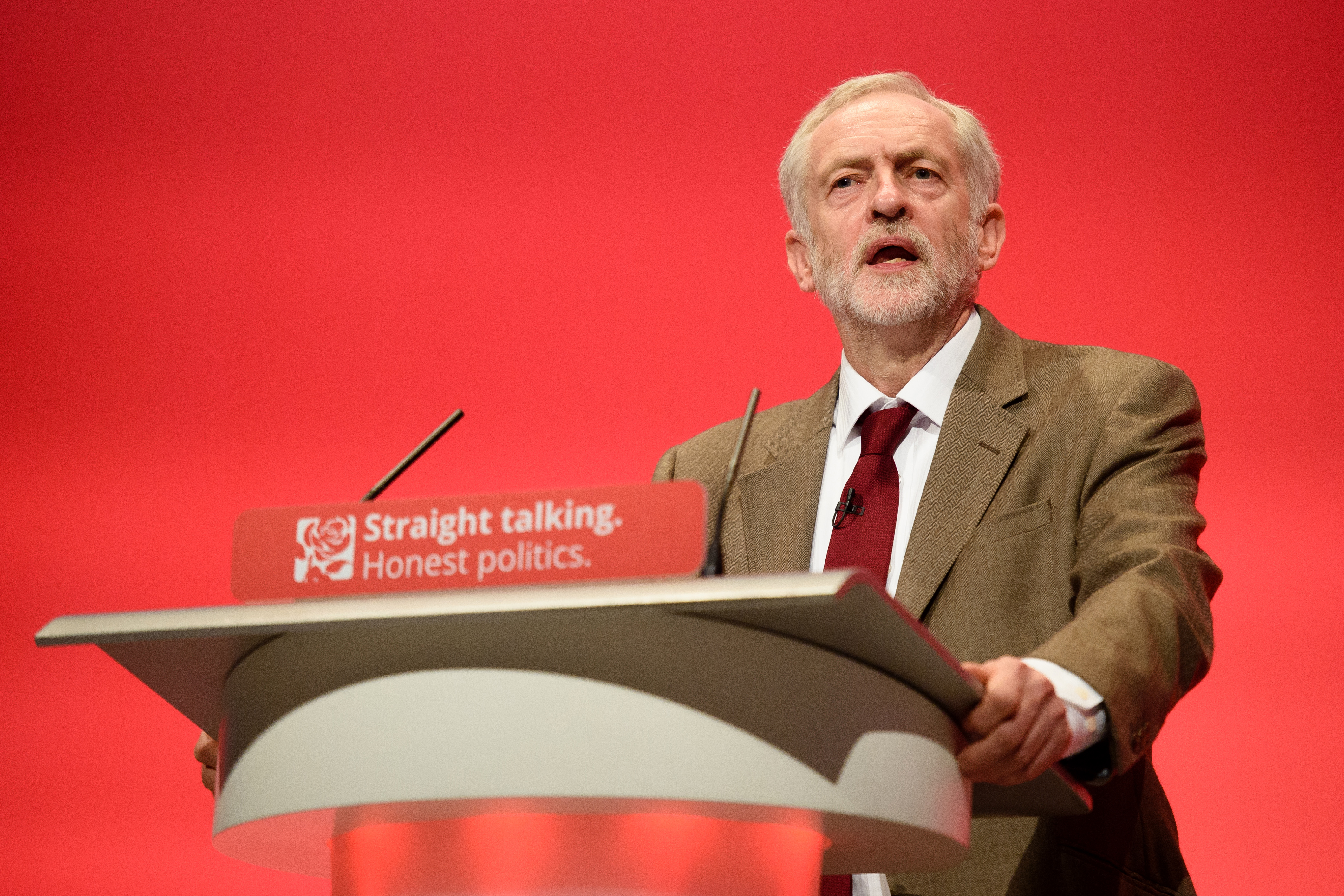
Bower demonstrates comparable negligence when he deals with Corbyn speaking at a meeting of the Palestinian Return Centre. He describes the PRC as “a group known to blame the Jews for the Holocaust”. Once again, no evidence is provided. As far as I am aware, none exists.
I am guessing that Bower’s claim depends upon another widely reported PRC meeting in parliament just over two years ago. One member of the audience, affiliated neither with Corbyn nor the organisation, stood up and asserted that a particular rabbi had antagonised Hitler and therefore precipitated the Holocaust.
I contacted the PRC. An official spokesperson said that Bower’s allegation is “blatantly false”. They also pointed out that an inquiry led by the Commissioner of Standards found that the event had not promoted anti-semitism, nor been taken over by anti-semitic speakers.
Bower is again inaccurate on Corbyn and the National Health Service. He reports that the junior doctor strikes organised by the British Medical Association in 2016 were “under the control of Momentum”.
As so often, Bower provides no evidence for his (if true) significant revelation
As so often, Bower provides no evidence for his (if true) significant revelation. I asked the BMA whether this was the case. A spokesperson told me: “It was not true that any outside political group directed this action or that political parties were involved in its planning or execution, and there is no evidence to suggest this was the case.” I also put Bower’s words to Momentum, which denied the claim.
Bower challenges Corbyn’s argument against the privatisation of the National Health Service by saying: “The NHS had never produced a single drug.” He at no point acknowledges British public-funded research from which pharmaceutical companies develop new products.
According to Bower, Corbyn excused the monstrous crimes of Argentine leader General Leopoldo Galtieri – notorious for engineering the ‘disappearances’ of tens of thousands of his political opponents – during the 1970s and 1980s as “the price for liberating the Falklands from Britain”. A serious allegation which may, for all I know, be true. But no evidence is provided. He asserts that Corbyn is “dedicated to destroying Western liberal society”. Another damning allegation – but no evidence is provided.
Bower makes much of a confrontation between Labour activist Marc Wadsworthand Labour MP Ruth Smeeth at the launch for Shami Chakrabarti’s report on anti-semitism in June 2016. He writes that “Wadsworth snapped at her that not only was she ‘working hand-in-hand’ with the right-wing media by speaking to the journalist, but she was also a Jew”.
The brief incident is recorded on video. I have examined this video. Nowhere in the footage does Wadsworth say that Smeeth is Jewish. I spoke to two eyewitnesses to this event, both of whom confirmed to me that at no point did Wadsworth say that Smeeth was Jewish.
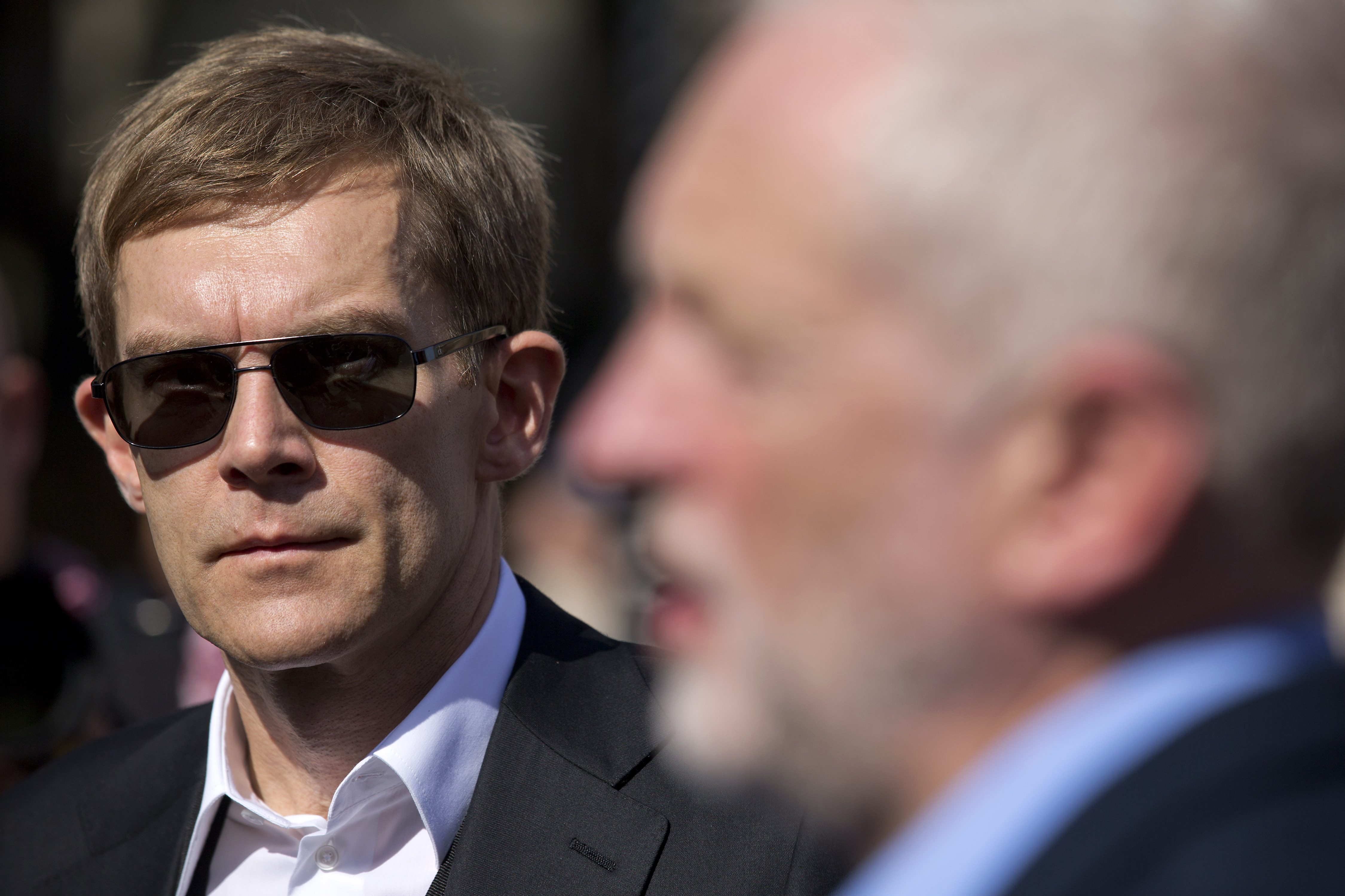
Bower’s account of Labour MP Naz Shah’s suspension from Labour in April 2016 also contains important omissions and inaccuracies. Shah was suspended after an anti-semitic Facebook post from two years earlier came to light. The post suggested relocating Israel to America and was accompanied by a map with Israel inside North America. Bower neglects to mention that Shah was sharing a satirical post from the website of Norman Finkelstein, a Jewish historian.
Bower writes: “Once the ‘transportation’ was complete, she argued, evoking the image of cattle trucks arriving at Auschwitz, ‘the Middle East would again be peaceful’.” Bower wrongly attributes these words to Shah when they were attached to the original image. His own reference to cattle trucks and Auschwitz is gratuitous.
Again and again, Bower makes assumptions about the motives of Jeremy Corbyn and his inner circle that strike me as unwarranted. One telling example is Bower’s account of the well-known episode in July 2018 when Margaret Hodge confronted Corbyn in the Commons and reportedly called him “a fucking racist and anti-semite”.
Bower says Seumas Milne, Corbyn’s media adviser and right hand man, insisted that Hodge should be disciplined, adding that “he would not tolerate criticism from Zionists”. Again there is no evidence for this claim that Milne said this. Even if there were, it is an unreasonable assumption to make. Hodge had made a savage public and personal attack on the Labour party leader. I can’t think of a single one of Corbyn’s predecessors who would have tolerated it from any of their MPs. Bower supplies no reason to explain his assertion that a pointed refusal to ‘tolerate criticism from Zionists’ was behind the decision.
Charges of anti-semitism
On page 240 of the book, Bower writes: “For Corbyn, Jews were automatically assumed to be rich capitalist financiers and bankers backed by Wall Street, and were all undoubted swindlers. They were not victims of racism, but the enemy of the working class.”
This is a travesty, all the more so since Bower ignores the fact that Corbyn has a long record of opposing anti-semitism.
Bower ignores the fact that Corbyn has a long record of opposing anti-semitism
To take just one example, in 2002 Corbyn tabled a motion expressing sympathy with members of a synagogue in Finsbury Park after it was daubed with racist graffiti. Of course this does not in itself refute Bower's claim that Corbyn is an anti-semite. Nevertheless, in any discussion of Corbyn’s anti-semitism, it cries out to be taken into consideration. I have checked as thoroughly as I can and can find no mention in Bower’s book of Corbyn's sustained parliamentary activity against anti-semitism and in support of Jewish rights.
Bower is not at all clear on where Corbyn’s supposed anti-semitism comes from. He points to the notoriously anti-semitic 1843 essay by Karl Marx called On The Jewish Question. However, he also writes that Corbyn barely reads books, so Bower presumably does not think his anti-semitism comes from Marx.
Dangerous Hero is contradictory and muddled. At first Bower writes that Corbyn railed against predominantly Jewish employers in the garment trade during his time as a trade union official, but then in the next sentence adds that most union members were also Jewish.

Bower tells how Corbyn "conjured a tale of a brave personal fight against exploitative Jewish employers of sweatshop labour. Parochialism and fantasy fed the original source of his anti-Semitism – namely, as he saw it, the malign collective power of Jews. Corbyn was immersed in an unfamiliar world. The union was dealing with struggling, overworked, self-employed Jews".
Bower fails to mention that several Jews occupy senior positions in Corbyn's inner circle, among them Jon Lansman, the founder and head of Momentum. Once again, while not in itself refuting Bower’s picture of Corbyn as an anti-semite, it seems relevant to point this out.
Bower also fails to entertain the proposition that the Labour leader's attachment to the Palestinian cause might be based on a passionate concern for human rights and international law. There is no more serious or damning charge than anti-semitism. If he is to level it against Corbyn, Bower has an obligation to explain exactly what he means.
Also troubling is Bower’s description of Milne: here is how Bower describes him after the arrival of members of the Board of Deputies of British Jews in Jeremy Corbyn’s office: “In the presence of Jews, his body language had visibly changed.”
No evidence or source is provided to justify this (if true) wholly damning assertion. Allegations of such magnitude should always be backed by evidence which can be publicly assessed and verified.
David Hearst is editor in chief of Middle East Eye. Before that he was a journalist with The Guardian.
“I sat for a number of years opposite Seumas," he told me. "I am Jewish, as are a number of my former colleagues on The Guardian. At no time did any of us sense that Seumas’s body language changed in our presence.
"He was part of the team, held in high regard for his knowledge of the Middle East and often consulted on it, particularly by the person who sat next to him, fellow columnist Jonathan Freedland. That opinion of Seumas was shared by our editor at the time, Alan Rusbridger, who kept him as comment editor for six years.”
Bower gets it wrong on Islam
Bower makes a great deal of Corbyn’s Muslim links, often in order to discredit the Labour leader through association. Once again his accounts of Islam and the Muslim world contain smear and distortion.
Consider this passage: “In planning London’s next Stop the War demonstration, Corbyn welcomed the support of the Muslim Association of Great Britain. The group was attached to the Muslim Brotherhood, a terrorist organisation sponsoring suicide bombers to impose Sharia or Islamic law across the globe.”
There is no such organisation as the Muslim Association of Great Britain. Bower presumably means the Muslim Association of Britain. A minor point for sure, but Bower’s book contains numerous elementary factual errors of this nature. (I have not space to list them all here, but if anyone doubts me I am more than happy to send them a list.)
More troubling is Bower’s description of the Muslim Brotherhood. In March 2014, then-prime minister David Cameron launched a government inquiry to sustain the proposition that the Brotherhood in Britain had connections with violence in Egypt. The review by Sir John Jenkins could not find any evidence to support that view. This is nevertheless a gross misrepresentation of an organisation which came to power through democratic means in Egypt in 2012 before being supplanted in a bloody military coup a year later.
Bower goes on to say that the “principal supporters” of the Muslim Association of Britain were Iranian Ayatollahs. Piffle! I checked with a founder of the MAB, Anas Altikriti. He told me Bower’s claim is false. Anyone with a rudimentary understanding of British Islam knows that MAB is a Sunni organisation, whose principal backers were emphatically not Shia Ayatollahs based in Tehran (only around 10 percent of the Iranian population are Sunni Muslims).
Bower censures Corbyn for protesting against the murderous crackdown by the Bahrain dictatorship on pro-democracy protesters who organised street demonstrations in 2011, claiming that the dissent was organised by Iran – and that Corbyn knew this.
Here, Bower accepts the official narrative of the Bahrain and Saudi governments. In my view he does a grave injustice to many brave Bahraini protesters, many of whom have been tortured and are still wrongly jailed.

Bower’s concern with anti-semitism is clear. However, he talks of other minority groups with a language which he would be unlikely to tolerate if used about Jews. Take this passage describing Corbyn’s dealing with his constituents: "By 1998, new arrivals from Somalia, Pakistan and Bangladesh had packed into Islington North. Queues of migrants and asylum seekers at the Red Rose sought Corbyn’s help to obtain homes, welfare benefits, character references for bail, help to reduce their sentences after criminal convictions, and intercession to avoid deportation."
In this passage, Bower is painting the Somali, Pakistani and Bangladeshi communities in north London as criminal. I have no doubt that there were some criminals among them, as there are in any community. However, this blanket condemnation of Muslim immigrant communities in north London makes me feel squeamish.
When I rang Corbyn’s office, I was told that constituency surgeries and advice sessions had taken place at the Red Rose in the 1980s. However, they were not held at this location from the late 1980s onwards owing to “disability access issues”.
I showed this passage to Colin Yeo, a celebrated immigration lawyer. This is what he told me: "The casual conflation of immigration with crime is extremely unfortunate. I seriously doubt there was much call for his assistance with bail, benefits, character references or criminal appeals, more like help with family members and refugee claims."
I also sent this passage to Hashi Mohamed, who immigrated to the UK from Kenya as a child and is now a barrister and broadcaster. Here is his response: "In the mid-1990s, as one of those recently arrived Somalis fleeing war and death as a child, in another constituency in London, Brent, we too sought help from our local MP. We sought out compassion and understanding, we sought help wherever we could find it, in a language we barely understood, in an environment completely alien to us. The surgeries held by local MPs were a clear lifeline."
This book fails at a basic intellectual level. For example, Bower often seems to equate Corbyn's criticism of Israel with anti-semitism. Yet he makes little attempt to explain why the two should be treated as identical. The failure to explain his methodology is made worse by the lack of serious analysis of the International Holocaust Remembrance Alliance definition of anti-semitism. Bower says it is internationally recognised, but fails to add that as of September last year, it was thought to have only been formally adopted by eight countries. He also fails to address the concerns of experts who remain alarmed that the definition is confusing and conflates criticism of Israel with anti-semitism.
Why has this book been welcomed?
There is a problem here which goes much deeper than Tom Bower himself and raises questions about the British media and political culture. Bear in mind that Bower’s book is not just intellectually dishonest, it is a farrago of falsehood and insinuation.
Yet it appears to have had no difficulty finding a mainstream publisher, while receiving a generous reception in the mainstream press. To their credit a handful of reviewers – above all Stephen Bush in the Observer – have exposed some of the errors in this book. But even the Bush review hardly touches on the extent of the collapse of journalistic standards in Bower’s account of Corbyn.
Are British journalists allowing hostility to Corbyn to get in the way of telling the truth?
British journalists need to ask themselves a question. Is there something rotten in British media discourse which allows someone like Bower to get away with this?
I have frequently criticised Jeremy Corbyn. Middle East Eye readers will know that I think he has serious questions to answer about anti-semitism. I have never made a secret of my Tory sympathies.
But I do believe in fairness. Are British journalists allowing hostility to Corbyn to get in the way of telling the truth? Has there been a balanced discussion of the anti-semitism claims against Corbyn’s Labour? The warm reception for Tom Bower’s ugly hatchet job on the leader of the opposition suggests that something has gone badly wrong with British public life.
We need to pause and reflect.
Additional reporting by Jan Westad.
The views expressed in this article belong to the author and do not necessarily reflect the editorial policy of Middle East Eye.
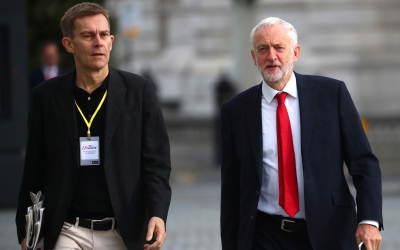
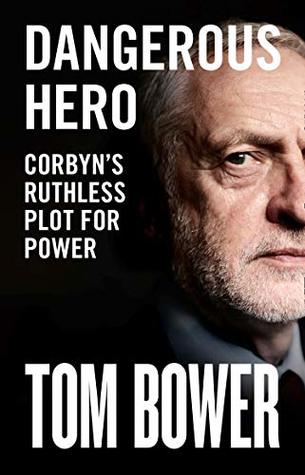


0 Comments:
Post a Comment
Subscribe to Post Comments [Atom]
<< Home